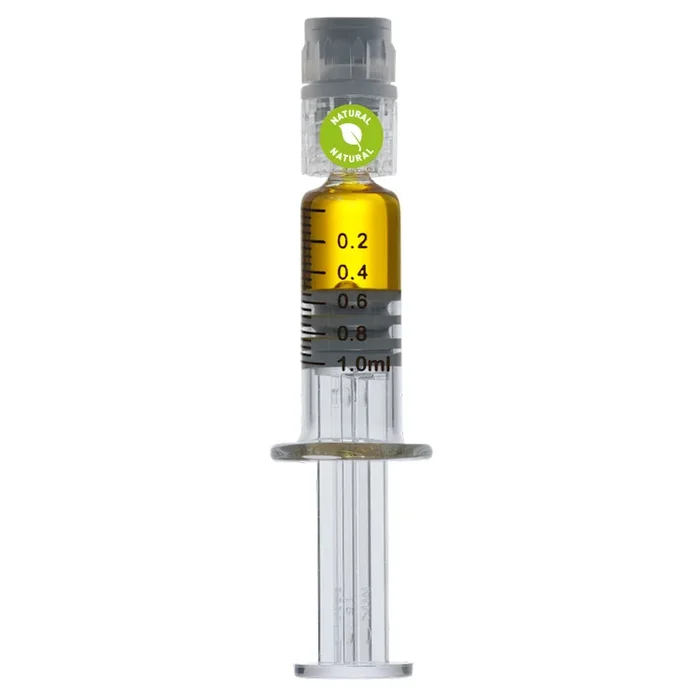- No Products In The Cart
- start shopping
Harnessing the Potential of CBD Oil for Epilepsy Canada

Are you seeking a natural and promising solution for managing epilepsy in Canada? Look no further than CBD oil for epilepsy Canada. In this comprehensive guide, we delve into the potential benefits and limitations of CBD oil, its legal status, and how it may revolutionize epilepsy management. Get ready to harness the power of CBD oil and embark on a journey towards improved seizure control and a better quality of life.
Understanding CBD Oil
CBD oil, short for cannabidiol oil, is derived from the hemp plant. Unlike its well-known counterpart, THC (tetrahydrocannabinol), CBD does not produce intoxicating effects or the “high” commonly associated with cannabis. CBD oil contains varying levels of CBD, which interacts with the body’s endocannabinoid system—an intricate network of receptors and neurotransmitters involved in regulating various bodily functions.
The Connection Between CBD Oil and Epilepsy
The history of using CBD oil for epilepsy stretches back centuries, with ancient civilizations recognizing its potential medicinal properties. In recent years, scientific research and clinical trials have shed light on the efficacy of CBD oil in reducing the frequency and severity of seizures in individuals with epilepsy. These studies have demonstrated promising results, offering hope to those seeking alternative treatments.
Furthermore, anecdotal evidence from patients using CBD oil for epilepsy has been encouraging. Many individuals have reported a significant reduction in seizure frequency and improved overall quality of life after incorporating CBD oil into their treatment regimens. These personal accounts provide valuable insights and add weight to the growing body of evidence supporting CBD oil as a viable option for epilepsy management.

Legality and Availability in Canada
In Canada, the legal status of CBD oil is closely tied to the country’s cannabis regulations. The Cannabis Act, enacted in 2018, legalized the recreational and medical use of cannabis products, including CBD oil. However, there are specific regulations and restrictions in place to ensure consumer safety and product quality.
Health Canada, the regulatory authority responsible for overseeing cannabis-related matters, has established guidelines for the sale, distribution, and use of CBD oil. These guidelines include licensing requirements for producers, quality control standards, and labeling regulations. By adhering to these guidelines, CBD oil manufacturers can ensure their products meet the necessary safety and quality standards.
When seeking CBD oil for epilepsy in Canada, it is crucial to choose reliable sources. Health Canada provides a list of licensed producers and sellers authorized to distribute cannabis products, including CBD oil. This ensures that consumers can access products that have undergone rigorous testing and meet the required standards. Additionally, healthcare professionals specializing in epilepsy can provide valuable guidance and recommendations on reputable sources for CBD oil in Canada.
Benefits and Considerations
CBD oil has shown potential benefits in managing epilepsy, offering hope to individuals seeking relief from seizures. Understanding these benefits and considering important factors can help individuals make informed decisions about incorporating CBD oil into their epilepsy treatment plans.
Unveiling the Potential Benefits of CBD Oil for Managing Epilepsy
Research studies and patient testimonials have highlighted several potential benefits of using CBD oil for epilepsy management. One significant advantage is its ability to potentially reduce the frequency and intensity of seizures. CBD interacts with the body’s endocannabinoid system, which plays a crucial role in regulating neuronal activity and maintaining balance.
Studies have shown that CBD oil may have anticonvulsant properties, meaning it could help suppress abnormal electrical activity in the brain that leads to seizures. By targeting specific receptors and neurotransmitters involved in the seizure process, CBD oil may contribute to a reduction in seizure activity and improve overall seizure control.
Furthermore, CBD oil may also have neuroprotective properties, potentially shielding the brain from further damage caused by seizures. This aspect is particularly important for individuals with epilepsy, as recurrent seizures can have long-term detrimental effects on cognitive function and overall brain health.
Discussing How CBD Oil May Help Reduce Seizure Frequency and Intensity
The mechanisms through which CBD oil exerts its anticonvulsant effects are still being studied, but researchers have identified some potential pathways. CBD interacts with various receptors in the endocannabinoid system, including CB1 and CB2 receptors, which are found throughout the brain and central nervous system.
By modulating these receptors, CBD oil may help regulate neuronal excitability and dampen excessive electrical activity that triggers seizures. It may also enhance the inhibitory signals in the brain, promoting a better balance between excitation and inhibition.
In clinical trials, CBD oil has shown promising results in reducing seizure frequency in certain types of epilepsy, such as Dravet syndrome and Lennox-Gastaut syndrome. These conditions are often resistant to conventional antiepileptic medications, making CBD oil a potential alternative for individuals who have not responded well to other treatments.
Addressing Potential Side Effects and Precautions to Consider
While CBD oil offers potential benefits for epilepsy management, it is important to be aware of potential side effects and take necessary precautions. Common side effects of CBD oil may include drowsiness, fatigue, changes in appetite, and gastrointestinal discomfort. These effects are generally mild and temporary, but individuals should monitor their response to CBD oil and adjust their dosage accordingly.
Additionally, CBD oil can interact with certain medications, including antiepileptic drugs. It is crucial for individuals using CBD oil for epilepsy to consult with their healthcare providers to ensure there are no adverse interactions or changes in drug effectiveness.
Furthermore, the quality and purity of CBD oil products can vary. To ensure safety and effectiveness, individuals should choose CBD oil from reputable sources that adhere to stringent quality control standards. Health Canada’s list of licensed producers and sellers can serve as a reliable reference when selecting CBD oil products in Canada.
Lastly, it is essential to approach CBD oil as a complementary treatment rather than a replacement for conventional epilepsy medications. Individuals should work closely with their healthcare providers to develop a comprehensive treatment plan that incorporates CBD oil alongside their existing medications and therapies.
-
Product on sale
 Mix & Match – Jungle Ridge Concentrates 7 x 1g (7g)Starting at Original price was: $176.40.$158.76Current price is: $158.76.
Mix & Match – Jungle Ridge Concentrates 7 x 1g (7g)Starting at Original price was: $176.40.$158.76Current price is: $158.76. -
Product on sale
 Mix & Match – Jungle Ridge Concentrates 4 x 7g (28g)$261.00 – $510.30
Mix & Match – Jungle Ridge Concentrates 4 x 7g (28g)$261.00 – $510.30 -
Product on sale
 Mix & Match – KleerX Concentrates 7 x 1g (7g)Starting at Original price was: $105.00.$94.50Current price is: $94.50.
Mix & Match – KleerX Concentrates 7 x 1g (7g)Starting at Original price was: $105.00.$94.50Current price is: $94.50. -
 Boost – THC Distillate (1000mg)$19.00
Boost – THC Distillate (1000mg)$19.00
Conclusion
CBD oil holds potential benefits for managing epilepsy, including a potential reduction in seizure frequency and intensity. Understanding these benefits and considering important factors such as potential side effects, medication interactions, and product quality can help individuals make informed decisions about incorporating CBD oil into their epilepsy treatment plans. By working closely with healthcare providers and following best practices, individuals can harness the potential of CBD oil as a valuable adjunctive therapy in their journey towards improved seizure control and overall well-being.
FAQs

What is the best CBD for epilepsy?
The best CBD for epilepsy varies from person to person, as individuals may respond differently to different CBD products. It is recommended to choose high-quality CBD oil from reputable sources that have undergone third-party testing for purity and potency. Consulting with a healthcare professional experienced in epilepsy treatment can also provide guidance on selecting the most suitable CBD product for individual needs.
What does CBD mean in epilepsy?
CBD stands for cannabidiol, which is a non-intoxicating compound derived from the hemp plant. In the context of epilepsy, CBD has shown potential in managing seizures and reducing their frequency. CBD interacts with the body’s endocannabinoid system, which plays a role in regulating various bodily functions, including neuronal activity. By modulating this system, CBD may help control seizures and improve overall seizure management in individuals with epilepsy.
Can CBD help children with seizures?
There is growing evidence suggesting that CBD may be beneficial for children with seizures, especially those with treatment-resistant forms of epilepsy, such as Dravet syndrome or Lennox-Gastaut syndrome. Clinical trials and anecdotal reports have shown promising results, with some children experiencing a reduction in seizure frequency and improved quality of life. However, it is crucial to work closely with pediatric healthcare professionals experienced in epilepsy management to determine the appropriate dosage and monitor the child’s response to CBD treatment.
Does CBD calm kids?
CBD has the potential to promote a sense of calmness in individuals, including children, due to its interaction with the endocannabinoid system, which plays a role in regulating mood and emotions. However, the specific effects of CBD on children can vary, and it is important to note that CBD does not produce a psychoactive “high” like THC. When considering CBD for children, it is essential to consult with healthcare professionals and follow their guidance to ensure safe and appropriate use.
Can I take CBD oil with Keppra?
It is important to consult with a healthcare professional before taking CBD oil alongside any antiepileptic medication, including Keppra (levetiracetam). CBD has the potential to interact with certain medications, including those metabolized by the liver’s cytochrome P450 enzymes, which can impact their effectiveness or increase the risk of side effects. A healthcare professional experienced in epilepsy treatment can assess potential interactions and guide individuals on the appropriate use of CBD oil in combination with Keppra or any other medications.
